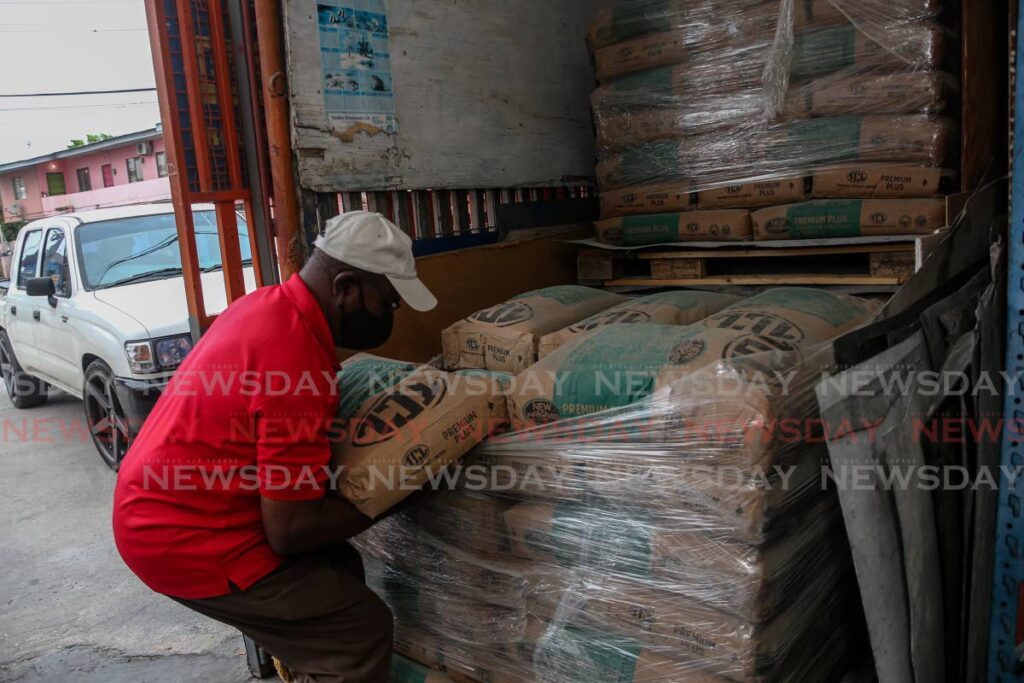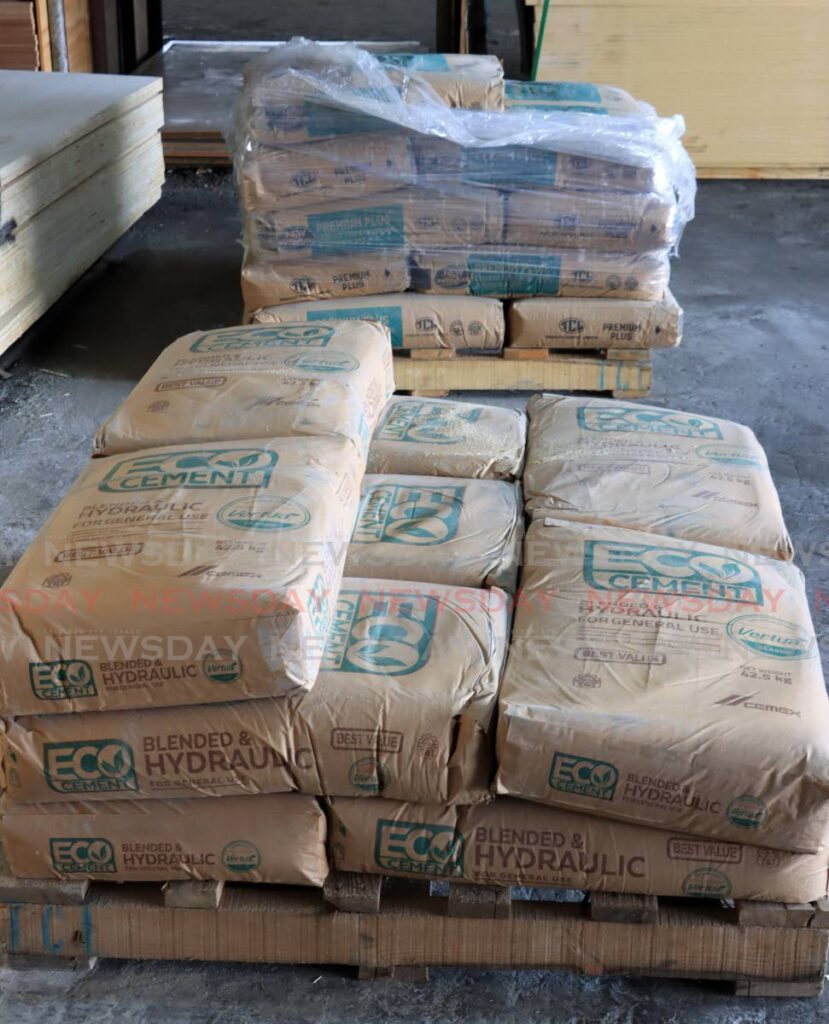Government removes cement quota to offset TCL price increases

GOVERNMENT responded to plans by Trinidad Cement Ltd (TCL) to increase its cement prices by increasing the amount of cement which could be imported into Trinidad and Tobago.
The Trade and Industry Ministry will meet with TCL at the earliest opportunity and after this meeting, "recommend further policy adjustments inclusive of a review of the common external tariff (CET) on cement, if necessary, in the national interest."
This information was contained in a statement issued by the ministry on Wednesday.
The statement said, "Earlier today (Wednesday), the Cabinet of Trinidad and Tobago agreed to the suspension of the quota and registration system for cement."
This decision was taken as a result of the ministry's monitoring of market conditions in the cement industry and TCL's announcement on Monday that it will increase the prices of its premium plus and eco cement by 6.63 and 7.69 per cent from February 19.
This price adjustment, the ministry continued, is the fourth undertaken by TCL in the last 26 months.
The other three cement price increases were 15.6 per cent (December 2021), seven per cent (August 2022) and five per cent (March 2023).
The ministry said Government's decision was based on two considerations – availability of affordable cement and the viability of the local cement industry.
The former deals with cement forming a critical linkage between the manufacturing and construction sectors.
With respect to this, the ministry said cement is vital for the country's sustainable development.
"There are several large-scale projects which will be adversely affected but moreso, the availability of affordable cement to consumers is of paramount importance."
The latter identifies cement as a pillar of the non-energy sector and its ability to allow this sector to contribute to the economy.
The ministry said, "The local manufacturer is a major exporters of building cement, net foreign exchange earner and a major employer."
The existing quota and registration system for cement, the ministry continued, was instituted on January 1, 2021 with an initial ceiling of 75,000 tonnes of cement allowed for import.
In 2022, the maximum quota ceiling for cement allowed for importation was increased to 150,000 tonnes. This ceiling remained in effect in 2023.
The ministry said the suspension of the quota and registration system means "there will be no quota on the volume of cement allowed for import."
Cement, the ministry continued, remains on the import negative list and will continue to be subject to a licensing regime.
The ministry said this regime is non-automatic and applications for a licence to import cement must be submitted to it, with certain requirements.
These include the companies seeking to import cement being registered under the Companies Act, have adequate and appropriate warehousing facilities for the safe and reliable storage of imported cement, have an established distribution network and must ensure that all imported cement meets the relevant Caricom regional product standards.
In the interim, the ministry said, imported cement will continue to be subject to a 20 per cent CET rate of duty.
The ministry gave the assurance that it will continue to monitor market conditions.

The suspension of the quota and registration system for cement was welcomed by the Trinidad and Tobago Contractors Association (TTCA) and the Greater San Fernando Chamber of Commerce.
TTCA president Glenn Mahabirsingh said the association endorses this decision.
"As contractors and users of cement, we encourage fair competition among players in the industry as this will keep the price of cement at a competitive level on the local market."
Mahabirsingh said this ensures there is critical input material to the construction sector.
He added, "As such, the TTCA would support the continued local manufacture cement."
Mahabirsingh reiterated that this must happen at a competitive level to ensure that contractors can deliver to their customers at competitive prices.
He said contractors compete among themselves for projects.
Mahabirsingh added this competition is often huge and fair.
"So any input or input elements to the construction process should be at the same level of competition."
Mahabirsingh said, "Competition is healthy. You get people being innovative, you get them being efficient and therefore that efficiency will pass to your customer, which is contractors."
He added that the success of this decision will be determined by the pricing of cement in the coming months.
"At the end of the day, what contractors need is competitive price inputs. So we can offer that to our contractors and we are not ad hoc changing in pricing."
Mahabirsingh said construction projects could have a duration of 10-16 months.
"Some of these projects are fixed price sum contracts where there is no recourse from the contractor to be compensated by their clients with these increases which are driven by market forces."
In the case of projects where there is government regulated pricing, Mahabirsingh said there are conditions which allow compensation to contractors for things such as increase in the prices of input materials.
But he added where market-driven forces are at work, there is no such protection for contractors.
"If steel prices increase on the market, contractors absorb that. If cement prices increases,contractors absorb that."
Mahabirsingh said, "What contractors really want is stability in pricing and therefore that stability will allow us to operate in a competitive and fair manner."
Chamber president Kiran Singh said, "Cement is the cornerstone of the construction industry in this country. The country would be faced with immediate increases in the cost of concrete blocks as well."
Sing added that thousands of workers are employed directly and indirectly in this industry which was shut down for a prolonged period during the covid19 pandemic.
As a one of the main drivers of economic growth outside of the energy sector, Singh was concerned that the proposed TCL price increase could cause the construction industry to contract.
He said this could have catastrophic implications on the entire economy.
On Monday, TCL said the decision to increase prices was “unavoidable” in light of continuous inflation affecting the industry.
“(This decision is) in order to cope with the escalating costs of natural gas, raw materials, spare parts and other essential inputs which have risen significantly in the past year."


Comments
"Government removes cement quota to offset TCL price increases"